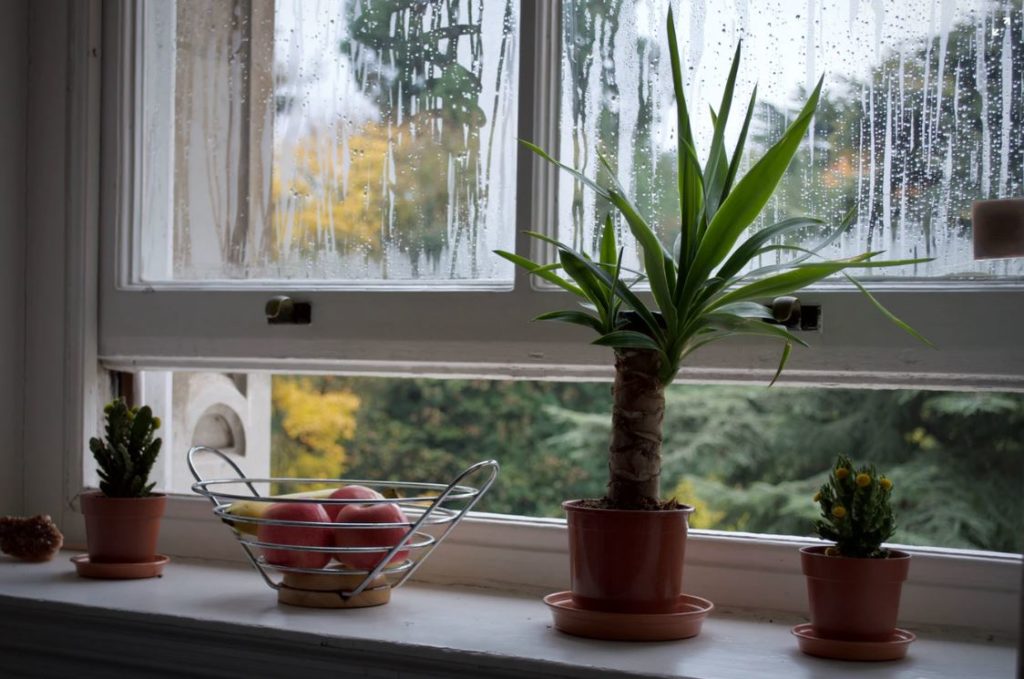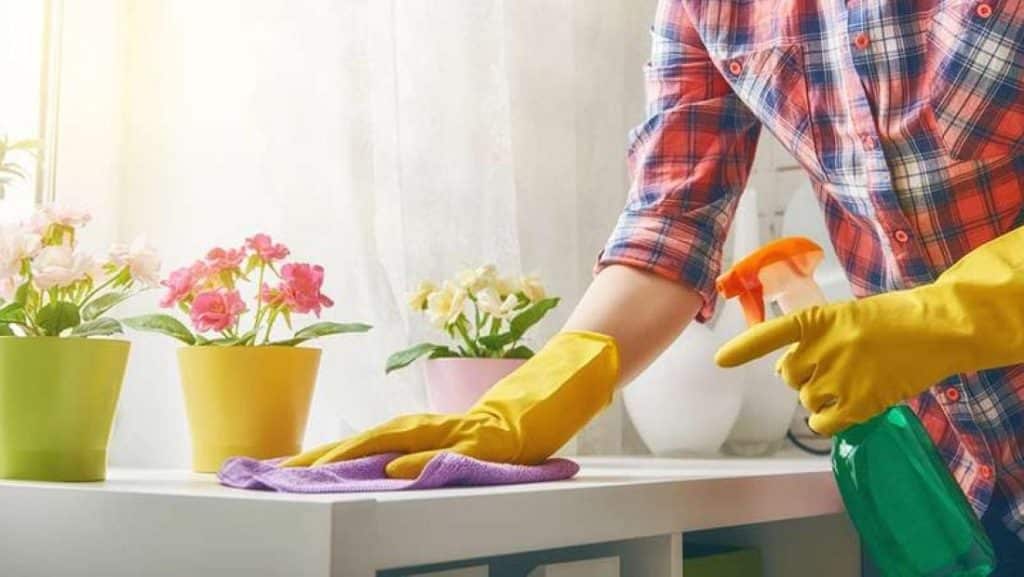As the summer season approaches, indoor air quality becomes an increasingly important and prominent part of our daily lives. We all know that warm weather and a fresh, clean home go hand in hand. However, a comfortably clean home means more than just getting rid of old clothes and deep cleaning the bathroom. Working to improve your indoor air quality by taking simple preventative steps can make a huge difference in helping you breathe easy in your home.
Keeping your home at its best means having your HVAC system maintained and cleaned twice a year. Your system continually circulates the air throughout your home. This means all the dust, mold, pollen, and any other particulates floating in the air eventually make their way to your coil and get trapped there as your system runs. Failure to clean and maintain this and other components in your unit means that these contaminates will hang around. This will impact the life and performance of your system, as well as the quality of air in your home. But Indoor Air Quality (IAQ) means more than just a well-maintained HVAC system.
Here are a few ways you can improve your home’s IAQ and ensure comfortability all year round.
A Clean Home is a Healthy Home
The best thing you can do to help improve your indoor air quality is to remove pollutants from your home. Household clutter, moldy or dirty objects, unsealed chemicals, and even improperly maintained household items can all be sources of harmful or even dangerous contaminants. In fact, the EPA has found that exposure to so-called Volatile Organic Compounds (VOCs) and other contaminants can be up to 2-5 times higher indoors than out.
We all want our homes and family clean and healthy, which is why it’s important to practice safe and effective cleaning techniques and reduce the sources of pollution and emissions in our homes whenever possible. Be sure to follow all instructions of any cleaning products or chemicals inside the home. Ensure rooms are adequately vented and that all containers are properly sealed and stored when not in use.
If you are worried about pollen and other allergens, try to vacuum your carpets at least once a week. By doing so, you capture particles that may be trapped in the fibers. Sweeping daily or even every other day can also help keep down allergens when hardwood floors are present. And don’t forget to regularly wash your bedding and dust your furniture to help control dirt and dust buildup.

Let in the Fresh Air
Another key to home health is to ensure your home has proper access to fresh air from outside. As homeowners, we often do our best to try and insulate our homes from the outside whenever possible. However, it’s important to remember that fresh air is one of your best weapons to fight indoor air pollutants. Make sure your home has access to the outside air; open windows when the weather permits and by utilizing fans and outdoor air intakes whenever possible.
Most residential HVAC systems are not designed to bring outdoor air into the house mechanically. Instead, they rely on infiltration (the process by which outdoor air naturally enters a home) and manual ventilation. However, many systems can be upgraded with ventilation control systems. These help bring fresh air in while at the same time venting stale or stagnant air outside.
Air Purifiers
Lastly, an indoor air purifier can help combat many of the allergens and other irritants you may encounter inside your home. We all know the pain of waking up with a sore throat and runny nose; in many instances, some form of air purification may be the solution. While no air purifier is 100% effective at removing allergens and other contaminants, the right system in the right application can certainly make a difference in your home health. Contact a residential HVAC specialist to help select the right purifier is a good way to get the most value for your money.
Some Air Purifiers, such as the Patriot IAQ Whole Home Purification system, can even help prevent the spread of viruses and other microorganisms inside your home. These purification systems have been tested and achieved a 99.999996% reduction on microorganisms such as bacteria, viruses, mold, and fungus. Every microorganism, including strains of coronavirus, requires a specific UVC dosage for inactivation. While Patriot IAQ systems have not been specifically tested against Covid-19, they have been tested and proven effective against similar pathogens. Many of these require an even greater dosage for inactivation than coronavirus.
UV disinfection systems are ideal for complementing standard HVAC filtration because microorganisms, particularly viruses, are typically so small that standard filters are mostly ineffective. UV systems have also been shown to reduce problematic molds and pathogens that tend to accumulate on coils and in drain pans that would otherwise be reintroduced and distributed throughout your home.
Contact us!
If you have any questions or concerns about how you can help improve your home’s indoor air quality contact A/C Masters https://acmasters.com/schedule/ and we will be happy to give you a free estimate on any repairs or replacements. Call 757-898-2894, 24/7 in case of an emergency.

